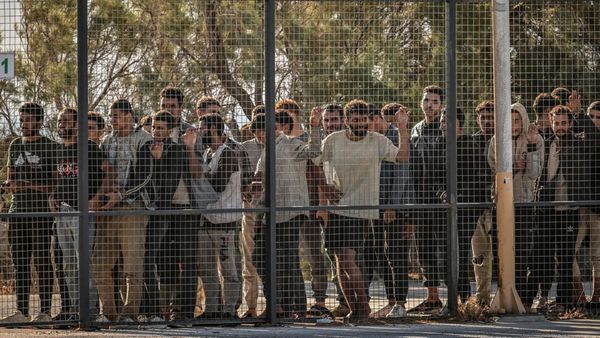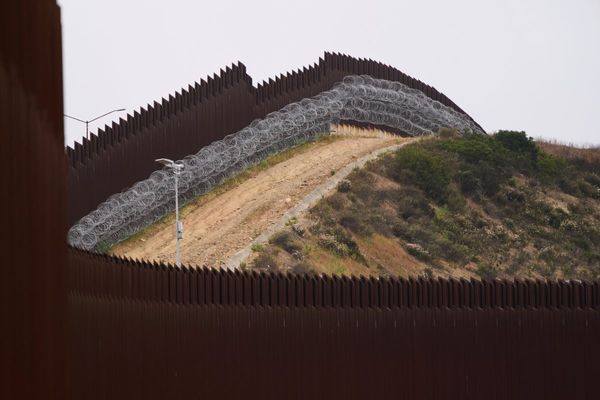
Ukraine and Russia have signed a UN-backed deal to allow the export of millions of tonnes of grain from blockaded Black Sea ports, potentially averting the threat of a catastrophic global food crisis. A signing ceremony at Dolmabahçe Palace in Istanbul was attended by the UN secretary general, António Guterres, and Recep Tayyip Erdoğan, Turkey’s president, who had played a key role during months of tense negotiations.
Guterres said “agreement did not come easy”, and described the deal as “a beacon on the Black Sea”. He said “You have overcome obstacles, and put aside differences, to pave the way for an initiative that will serve the common interests of all. Promoting the welfare of humanity has been the driving force of these talks. The question has not been what is good for one side or the other. The focus has been on what matters most for the people of our world. And let there be no doubt – this is an agreement for the world. It will bring relief for developing countries on the edge of bankruptcy, and the most vulnerable people on the edge of famine, and to help stabilise global food prices.”
Erdoğan said the grain export deal will prevent billions of people facing famine, and called on Russia and Ukraine to end the war, saying that it doesn’t only affect those involved, but the whole world. He said that the war would have to end at the negotiating table.
Robert Mardini, director general of the International Committee of the Red Cross said “A deal that allows grain to leave Black Sea ports is nothing short of life-saving for people across the world who are struggling to feed their families.”
Ukrainian presidential adviser Mykhailo Podolyak said that Ukraine would not sign any documents with Russia as part of the expected grain export deal, but that Ukraine and Russia would instead sign parallel agreements on grain exports with the UN. Podolyak added that any “provocations” by Russia over the deal will be met with a military response.
Google is to be banned in the occupied Donetsk region of Ukraine for allegedly promoting “terrorism and violence against all Russians”. Denis Pushilin, head of the self-proclaimed Donetsk People’s Republic (DPR) said “We have decided to block Google on the territory of the DPR. This is what they do in any society with criminals: they are isolated from other people. If Google stops pursuing its criminal policy and returns to the mainstream of law, morality and common sense, there will be no obstacles for its work.”
The Russian ministry of defence has claimed, without providing any evidence, that it killed “up to 300 nationalists” in a strike on a school building in Kramatorsk yesterday. The ministry also said that in the period from 5-20 July it had destroyed four launchers and one transport-loading vehicle of the US-supplied Himars missile system. It also claims to have shot down 12 Ukrainian drones.
Ukraine has the potential to inflict major losses on Russia and make gains on the battlefield, President Volodymyr Zelenskiy has claimed. Speaking in a late-night video address after meeting with senior military commanders, he said the group discussed the supply of modern weapons, adding the intensity of attacks on the Russians had to be stepped up.
The US believes that Russia’s military is sustaining hundreds of casualties a day in its war in Ukraine, and has lost thousands of lieutenants and captains in total, a senior US defence official said on Friday.
The UK’s Ministry of Defence has said it believes that Russia is experiencing a “critical shortage” of ground-attack missiles, even as it advances on Kramatorsk and Siversk.
The Russian government has expanded its list of “unfriendly states” which now includes 48 countries. The list now includes Greece, Denmark, Slovenia, Croatia and Slovakia.
Germany’s economics minister announced a new wave of emergency measures to cut the country’s consumption of gas after flows from Russia through the Nord Stream 1 pipeline resumed at reduced levels following a scheduled shutdown.
An EU proposal that member countries cut gas use by 15% to prepare for possible supply cuts from Russia is facing resistance from governments, throwing into doubt whether they will approve the emergency plan.
Britain will send scores of artillery guns and more than 1,600 anti-tank weapons to Ukraine, the UK defence secretary, Ben Wallace, said on Thursday. He said Britain would also provide counter-battery radar systems, hundreds of drones and more than 50,000 rounds of ammunition.
Ukraine has called for an international tribunal to bring Vladimir Putin to justice more quickly. Trying Russia separately for the act of aggression, with international participation, would speed up its quest to hold the Russian president and his inner circle accountable, officials said. “We hope to have the indictment within three months,” Andriy Smyrnov, Ukraine’s deputy head of the presidential administration, said.
The Belarus president, Alexander Lukashenko, said the war must be stopped in order to avoid the “abyss of nuclear war” and insisted Ukraine accept Russia’s demands. “There’s no need to go further. Further lies the abyss of nuclear war,” he told AFP. Lukashenko also accused the west of seeking a conflict with Russia and of provoking the war. “If Russia had not got ahead of you, members of Nato, you would have organised and struck a blow against it,” he said.
Russian proxies in the Russian-occupied territory of Donbas have been confiscating documents from forcibly mobilised troops, according to Ukrainian military chiefs. Russian proxies have reportedly been stripping personal documents from residents in attempts to force them to fight against Ukraine and making it impossible for forcibly mobilised troops to desert or identify those who have been killed, the general staff of Ukraine’s armed forces said.







